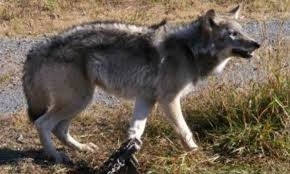 HOUGHTON, MICH.- Last year the National Park Service (NPS) began considering a broad range of management actions as part of determining how to manage the moose and wolf populations at Isle Royale National Park for at least the next 20 years. Following public comments and additional internal deliberations, the NPS has determined that it will revise and narrow the scope of the EIS to focus on the question of whether to bring wolves to Isle Royale National Park in the near term, and if so, how to do so.
HOUGHTON, MICH.- Last year the National Park Service (NPS) began considering a broad range of management actions as part of determining how to manage the moose and wolf populations at Isle Royale National Park for at least the next 20 years. Following public comments and additional internal deliberations, the NPS has determined that it will revise and narrow the scope of the EIS to focus on the question of whether to bring wolves to Isle Royale National Park in the near term, and if so, how to do so.Revised preliminary draft alternative concepts have been included in a public scoping newsletter, which is available online at http://parkplanning.nps.gov/ISROwolves.
Over the past five years the wolf population on the island has declined steeply. There were three wolves documented on the island as of March 2015 and recent surveys confirm only two wolves as of February 2016. At this time, natural recovery of the population is unlikely. The potential absence of wolves raises concerns about possible effects to Isle Royale’s current ecosystem, including effects to both the moose population and Isle Royale’s forest/vegetation communities.
As a result of the revised scope, the NPS is offering an additional public comment period that will close 30 days after an amended notice of intent is published in the Federal Register. “All comments already submitted have been posted online, however, we welcome additional input at this time” said Superintendent Phyllis Green. The park encourages everyone to visit the project web pagehttp://parkplanning.nps.gov/ISROwolves to review comments already submitted, read the newsletter, or provide additional comments. The NPS is also accepting comments by mail and at the park.
The NPS held public meetings last summer and received thousands of comments from the public and stakeholders. Feedback was received from all 50 states, the District of Columbia, and 19 other countries. Many commenters urged the NPS to bring new wolves to Isle Royale as they fear the present population of wolves will die off. Others opposed management of the wolf and moose populations.
 Keweenaw Report Your Source for Local News and Sports
Keweenaw Report Your Source for Local News and Sports





